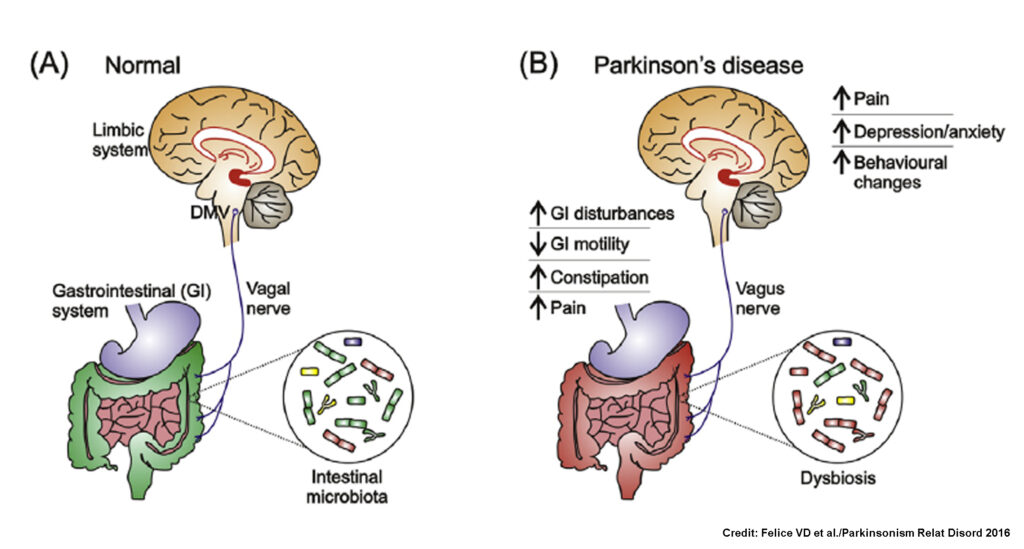
Emerging research suggests a significant connection between gut bacteria and Parkinson’s disease (PD), potentially opening new avenues for treatment. Scientists have identified deficiencies in specific gut microbiota among PD patients, leading to a growing interest in probiotics, vitamin supplementation, and microbial therapies as potential interventions.
The Role of B Vitamins in Parkinson’s Disease
One of the most notable findings in recent studies is the association between deficiencies in B vitamins—particularly riboflavin (B2) and biotin (B7)—and altered gut microbiomes in PD patients. These deficiencies may contribute to neuroinflammation and oxidative stress, both of which are hallmarks of Parkinson’s disease. Researchers believe that supplementing these vitamins could help restore gut balance, potentially improving symptoms and slowing disease progression.
Probiotics and Neuroprotection
Another promising discovery involves the probiotic Bacillus subtilis, which has demonstrated neuroprotective properties. In experimental models, Bacillus subtilis was found to reduce neuron toxicity and lower alpha-synuclein levels—the protein associated with PD—by 77%. These results suggest that targeted probiotic therapy could be a viable strategy for mitigating Parkinson’s-related neurodegeneration.
Link Between Parkinson’s and Gut Dysbiosis
A comparative analysis has also revealed a striking connection between Parkinson’s disease and inflammatory bowel disease (IBD). Both conditions share a depletion of butyrate-producing bacteria, which play a crucial role in maintaining gut health and reducing inflammation. Notably, IBD patients exhibit a 17% higher risk of developing Parkinson’s disease, highlighting a shared microbial factor that could be influencing disease onset and progression.

Future Directions and Treatment Potential
The growing body of evidence supporting gut microbiome interventions for Parkinson’s disease underscores the need for further clinical trials. Future research will focus on determining the efficacy of B vitamin supplementation, probiotic treatments, and microbiome-based therapies in slowing or preventing PD progression. If successful, these approaches could revolutionize how Parkinson’s disease is managed, shifting the focus toward gut health as a key factor in neurodegenerative disease treatment.
Conclusion
With mounting evidence linking gut bacteria to Parkinson’s disease, innovative treatments targeting the microbiome are gaining traction. From B vitamin supplementation to probiotics like Bacillus subtilis, new therapies offer hope for patients seeking alternative or complementary approaches to traditional PD management. As research continues, the role of gut health in neurological disorders may prove to be a game-changer in the fight against Parkinson’s disease.



